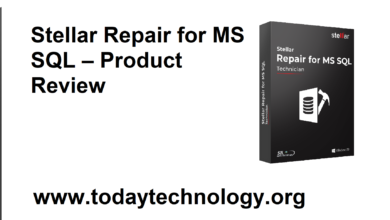
Data-as-a-service (DAAS) is a specialized data management strategy and deployment model that is cloud-based and delivers several data-related services like storage, processing, and analytics.
DaaS is the successor of the Software-as-a-service (SaaS) paradigm, which enables the customers to use cloud-based software applications working on a certain network. It does not need dedicated hardware servers that can perform certain tasks with a specific set of data. DaaS helps in sharing a common infrastructure that can let you get the desired economies of scale. It also helps in sharing the data across various teams that can permit greater collaboration and knowledge transfer. After acquiring the DaaS services it becomes possible to take care of storage, processing, and analytics needs that can minimize the data silos and data sprawl.
Table of Contents
Benefits of Data-as-a-Service
If you have decided to choose DaaS as the primary delivery mechanism then it means you are about to enjoy several benefits regarding your business. The benefits are far-reaching especially in the case of the public cloud. As far as financial matters are concerned it has the ability to transform capital expenditures into operational expenditures.
According to some business experts, DaaS minimizes the dangers of vendor lock as it deploys the latest technologies. As an impact, the organizations can use different storage services that are readily available and can be switched over at any moment. Some organizations feel that DaaS reduces the risk of vendor lock-in because of the popularity of technologies that support DaaS deployments. For example, there are a variety of storage services offered on Amazon Web Services, Google Cloud Platform, and Microsoft Azure that are similar in functionality. This means organizations have many storage options readily available to which they could switch over at any time. Business owners can enjoy several different options in a single or multi-cloud.
After moving the data to the centralized infrastructure of the DaaS, the organizations can benefit from the economies of scale that are available on the infrastructure investment. It is a great option in standardizing the skill sets. These can make the organizations work more efficiently. The opportunities to share the data across the organization also increases that can encourage better collaboration. It has also proved itself as an effective mode of knowledge sharing.
Challenges in using Data-as-a-Service
For some of the users, some benefits are no less than the challenges. DaaS was introduced to start off with a service that is beneficial for other teams as well. In this case, although the technology is at its peak, it still becomes a huge challenge if you cannot determine where to start from and which is the right approach to handle all this.
The network performance can be a challenge if you are trying to transfer the data from the cloud or to the cloud. In case of ongoing transfer if the data movement strategy is not in place it can impact the computing and the compression.
Follow Today Technology for more!







